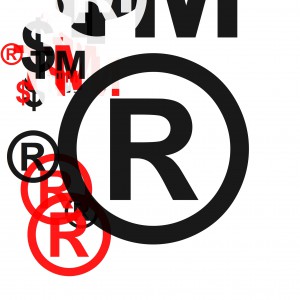April 11, 2019

In February 2019, the US Court of Appeals for the Fourth Circuit affirmed the district court’s summary judgment ruling that found that BOOKING.COM was not generic, but a descriptive mark with acquired distinctiveness. Trademark lawyers are intrigued by the fact that, as pointed out in Judge James Wynn’s dissenting opinion, the decision departs from most prior rulings in “.com” cases, where generic Secondary Level Domains (“SLD”) combined with Top Level Domains (“TLD”) do not generally add up to protectable marks (for example, LAWYERS.COM and MATTRESS.COM).
How did the Fourth Circuit determine that the mark BOOKING.COM was descriptive?
Analyzing a Generic Mark
Courts place marks into one of four categories of relatively increasing strength: generic, descriptive, suggestive, and arbitrary or fanciful. Generally speaking, generic marks will not receive trademark protection because they merely embody the brand name of the subject goods or services that they identify. Descriptive marks will only receive trademark protection if it can be demonstrated that the subject marks have acquired distinctiveness through consumer recognition. The case before the Fourth Circuit involved whether BOOKING.COM should be categorized as a generic or descriptive mark. To determine whether a term is generic, the Fourth Circuit followed a three-step test: 1) identification of the class of product or service to which use of the mark is relevant; 2) identification of the relevant consuming public; and 3) determination as to whether the primary significance of the mark to the relevant public is an indication of the nature of the class of the product or service to which the mark relates.
How Trademark Lawyers Can Fight a Genericness Determination
In order to address step three of the above-referenced test, the trademark lawyers for BOOKING.COM introduced a “Teflon” survey to illustrate that 74.8% of respondents identified with BOOKING.COM as a brand name, rather than as a general reference to hotel reservation websites. A Teflon survey begins with running participants through a number of terms (such as “popcorn” and “delta”), asking whether they are generic terms or brand names. After participants have become accustomed to how the test works, participants are run through another set of terms, this time with the term(s)/mark(s) at issue included. While other circuit courts have predominantly found that the combination of generic SLDs with TLDs are generic, they have acknowledged that there are rare occasions where such marks are determined to be non-generic in nature. Here, the Fourth Circuit found that BOOKING.COM was one of those rare occasions where evidence demonstrated that the mark has acquired distinctiveness among the consuming public such that it is recognized as the brand itself, and not the goods or services that are offered by the company.
Seeking the Services of a Trademark Lawyer
Many trademark-related legal risks can be minimized or eliminated entirely by working with an experienced trademark lawyer before issues arise. Businesses that are interested in trademarking a domain name should consult with an experienced trademark lawyer to help increase the chances of successful registration. If you are interested in learning more about this topic, or need to talk with a trademark lawyer, please email us at info@kleinmoynihan.com, or call us at (212) 246-0900.
The material contained herein is provided for informational purposes only and is not legal advice, nor is it a substitute for obtaining legal advice from an attorney. Each situation is unique, and you should not act or rely on any information contained herein without seeking the advice of an experienced attorney.
Attorney Advertising
Related Blog Posts:
Girl Scouts Involved in Trademark Law Dispute with Rebranded Boy Scouts



